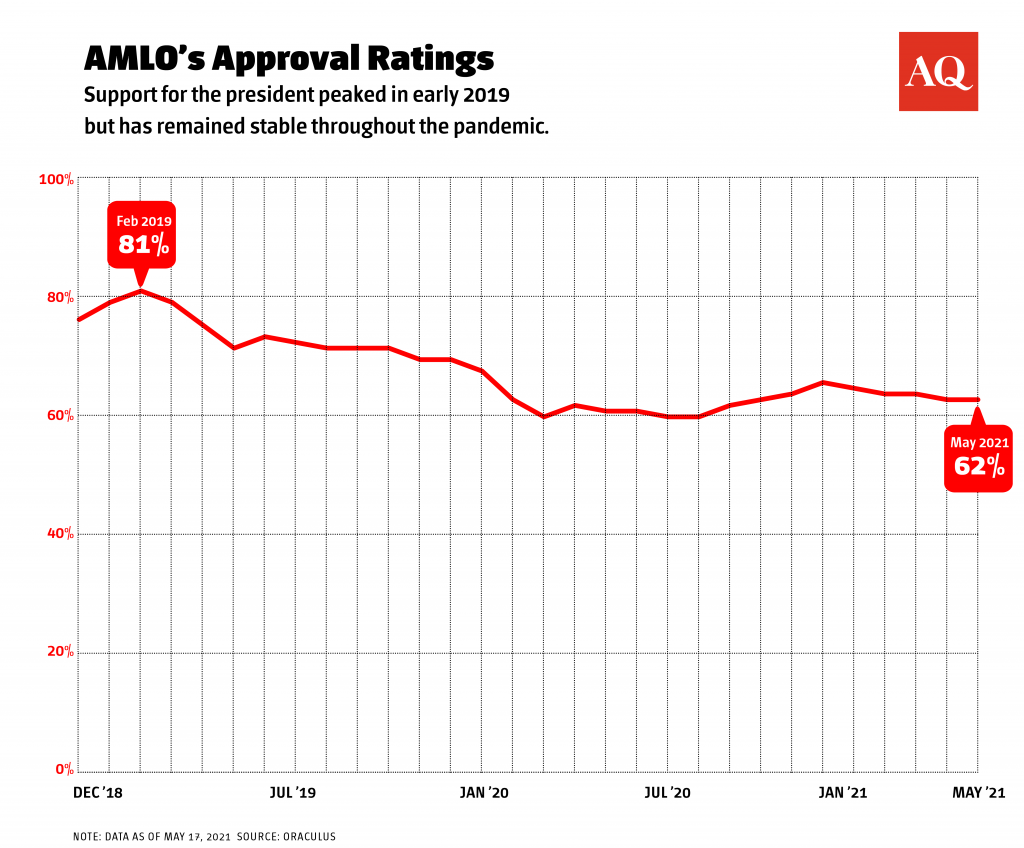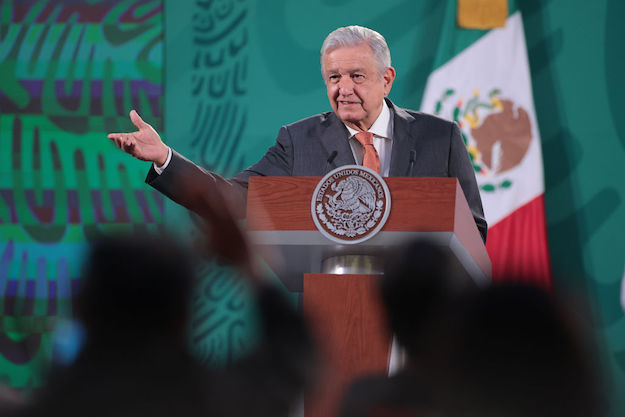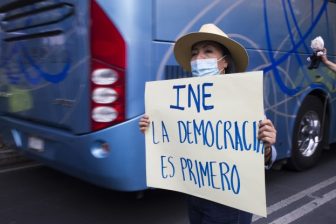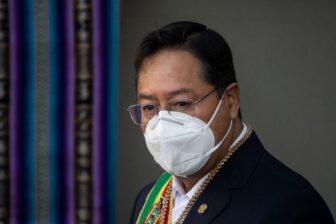MEXICO CITY – “Why wouldn’t I?” The reporter might not have expected that answer when she posed a question to Mexico’s president Andrés Manuel López Obrador (AMLO). “Did you meddle with the election, pushing for the investigation of opposition candidates?” she had asked. “Of course I did,” was the start of his reply. The president went on to accuse the press of not covering accusations against the opposition candidate in question, expressing his pride in having acted against corruption.
AMLO’s candid response underscores the contentious moment between Mexico’s electoral officials and the president, as he actively tries to help his party’s candidates ahead of the June 6 mid-term and regional elections.
Polls show that AMLO’s MORENA party is at risk of losing its supermajority in Congress while support for their candidates in gubernatorial races has been shrinking. That perspective seems to be making an already combative president become even more so.
AMLO has managed to maintain his approval rating around the 60% mark, despite soaring COVID deaths and a plunging economy – GDP dropped by 8.5% in 2020. Meanwhile, a poll from Oraculus-MX indicates that the MORENA majority in Congress is likely to drop to 45% from the current 51%.

This is a major election for Mexico: Voters will elect 15 of the 32 state governors, 19,469 municipal officials, and all 500 members of the Chamber of Deputies on June 6. The 335-seat supermajority that AMLO’s MORENA and its allies won in 2018 had guaranteed the president one representative more than the minimum required to push through constitutional reforms.
But now the party needs AMLO’s popularity to rub off on its candidates if it wants to keep, let alone expand, its influence. The president has been eager to support the party’s candidates – even if it means breaking campaign laws, including a rule that AMLO himself proposed after he lost the presidency to Felipe Calderón in 2006 and accused then-President Vicente Fox of meddling in the campaign.
Losing elections is something AMLO is not good at, as we learned from his reaction to Calderón’s election: He claimed it was illegitimate, led protests and set up a parallel administration. Letting his supermajority in Congress slip away now could push the president back towards that combative style he showed then and again in 2012, before changing his approach to the more measured tone that catapulted him into office in 2018.
Tough fight ahead
Of the 15 state governorships up for grabs, 12 are located in northern and central Mexico, where AMLO’s approval is weakest. And MORENA itself isn’t helping. Internal divisions are becoming visible and several of the party’s candidates for state governments are mired in controversy and losing ground. AMLO himself is on the warpath against the National Electoral Institute (INE), which he accuses of being biased against his quest to “transform” Mexico and of using political tactics to hurt his party’s candidates.
To be fair, the opposition is also scrambling to find its footing. While nearly two thirds of the population looks askance at political parties, approval for the opposition parties (PRI, PAN and PRD) is far lower than for MORENA. As a group, the opposition is divided and has not been able to find a counter-discourse or a charismatic figurehead.
During the 2018 campaign AMLO promised to govern as a centrist. But as soon as he won the election he canceled the already two-thirds completed construction of Mexico City’s International Airport (even before his inauguration) and several other investments since, berated the country’s business community, picked fights with international companies, and declared any objection to his way of governing as treasonous.
None of that has changed his status as a beloved president, but it has not spared his party. AMLO is intent on changing Mexico’s institutional framework in profound terms — what he calls the Fourth Transformation — but without control of Congress, he would lose his ability to pursue this agenda during the second half of his term.
The risk ahead is that a weaker MORENA could mean a more belligerent president — a risk not only for his opponents, but for the country’s institutions.
__
Ordorica is a Mexican journalist. She is a columnist at El Universal and hosts the program A las Tres on Forotv.








